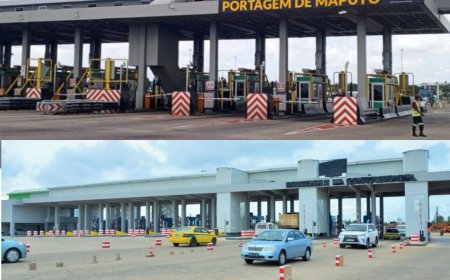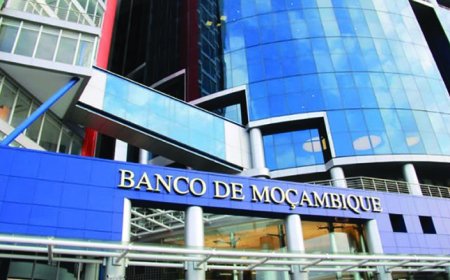Kidnappings in Mozambique: The hidden secret of the "victims"
Mozambique may be being used as a fertile ground where citizens of Asian origin operate organized crimes, involving kidnappings, money laundering, and drug trafficking through blackmail and threats among themselves. TORRE.News brings a different perspective on what could be the reason for the resurgence of kidnappings in Mozambique.
This phenomenon, which has already taken root in Mozambique, has tested the proactivity of the government and the strategies of the Police of the Republic of Mozambique, which, due to their limitations and vulnerabilities, are unable to effectively curb this type of crime.
The first kidnapping case in the country was recorded at the end of 2011 during Armando Guebuza's mandate. Interestingly, most victims are Mozambican businessmen of Asian origin (Muslims and Hindus).
Geographically, the wave of kidnappings that tarnishes Mozambique's international reputation has been frequent in the province and city of Maputo and the province of Sofala.
"All indications are that the city of Maputo shows a higher tendency and incidence of kidnapping cases, followed by Maputo province and finally Sofala, with records of 103, 41, and 18 cases, respectively," said the Interior Minister, Pascoal Ronda.
However, TORRE.News has learned from a reliable source that these kidnappings of citizens of Asian origin result from disputes over usurious debts between the instigators of the kidnappings and the kidnapped.
It is a form of retaliation in a dispute that also involves money laundering and drug trafficking within this community.
The same source confirmed that some of these kidnapped citizens have debts in their countries of origin, contracted with loan sharks to start businesses in Mozambique, with exorbitant interest rates that they often cannot honor.
The businesses are also suspicious, as some kidnappings target citizens with small shops, seemingly without income that would attract the kidnapping industry.
“These are loans with very high interest rates, the payment of which can take almost a lifetime,” the source emphasized.
TORRE.News also learned that when the debts become unbearable, the creditors resort to kidnapping the debtor or their relatives to pressure for payment. This is why the kidnapped rarely cooperate with authorities, as it would implicate self-incrimination.
More than 90% of the ransoms do not involve the police, with negotiations conducted directly between the kidnappers and the families of the kidnapped.
This narrative, however, does not nullify public opinion criticizing the authorities for failing to bring concrete results to curb this scourge that tarnishes the country's reputation abroad.
What is known from police authorities is that part of the masterminds and perpetrators of the kidnappings are citizens based in neighboring South Africa.
One of the cases that raised the most public questions was the kidnapping of a businessman in February, just meters from the Casa Militar, a barracks responsible for the President's security, which was expected to be one of the safest places in Maputo.
On Saturday, May 20, Aboo Gafar, a 50-year-old Indian businessman and member of the Muslim Association of Mozambican Businessmen and Entrepreneurs (AMEEM), was kidnapped in Maputo city.
There was an exchange of gunfire at the scene, and the police stated they had identified the vehicle used for the kidnapping, and investigations are underway to clarify the case. In the same location, according to the PRM spokesman, a policeman was fatally shot.
On Monday, May 22, AMEEM condemned the wave of kidnappings and criticized the police force for failing to protect and prevent the businessman from being kidnapped.
“Unfortunately, criminals carry out their operations in broad daylight, armed with firearms, with exposed faces, comfortably, without fear of assaulting anyone or any repercussion that might arise,” lamented AMEEM, adding that these acts compromise Mozambique’s socio-economic development.
In less than 72 hours, another citizen of Asian origin was kidnapped in downtown Maputo last night. The crime was executed by a group of five individuals, three of whom were armed.
The victim was subdued inside his own commercial establishment, from where he was dragged to the getaway car where the other two criminals were waiting.
Another curious fact is that most of the victims have seemingly low-income businesses such as beverage shops, tobacco shops, and grocery stores, yet they are still victims of kidnappings.
This scenario raises questions about why Mozambican and other national businessmen with more robust businesses are not victims of the same wave of kidnappings.
Public conviction is that these kidnappings are ordered by individuals based in South Africa, a neighboring country to Mozambique, which, in terms of kidnapping cases, is considered one of the countries with the highest kidnapping rates in the world, with a preference for citizens of Asian origin.
Since 2011, nearly 190 kidnapping cases have been recorded in Mozambique, and at least 288 arrests in connection with this type of crime, according to government authorities.





















